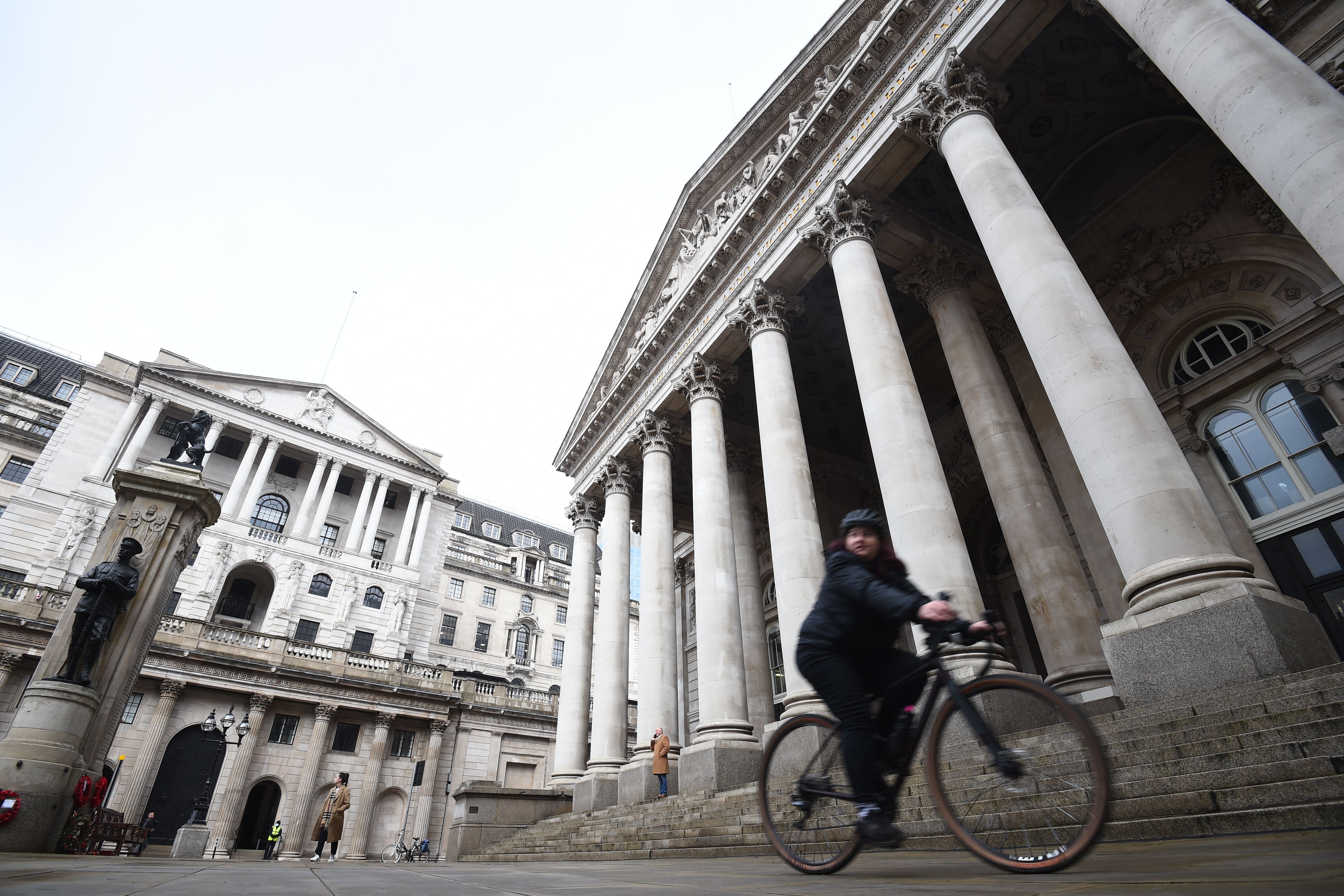More interest rate hikes on cards as inflation proves hard to shake, say experts
Inflation hit 10.1% in February – 0.3 points higher than experts had forecast, according to data released on Wednesday.

Interest rates might have to rise by more than previously feared, experts warned on Wednesday after inflation proved more stubborn than had been expected.
Economists said that the base rate, which is set by the Bank of England, might end up as high as 5% as decisionmakers try to keep a lid on runaway price hikes.
It came after Consumer Prices Index (CPI) inflation hit 10.1% in March, a fall from 10.4% in February, but still much higher than the 9.8% that experts had predicted.
Inflation is a measure of how fast prices are rising for shoppers across the country. The Bank of England is meant to try to keep inflation as close to 2% as possible at all times.
The main tool it has to do this is interest rates. By putting up the base rate it encourages people to save rather than borrow.
This reduces the amount of demand for products and services, therefore helping to keep pries under control.
Economists said that the base rate, which currently sit at 4.25%, could be increased further by the Bank of England in order to curb inflation.
Last month, Deutsche Bank economists predicted rates were most likely to peak at 4.25%, but following the latest smaller-than-expected drop in CPI inflation and continued wage inflation growth they have said they are now guiding towards a peak of 4.75% interest rates.
Meanwhile, economists at Investec said they are pricing in “75 basis points” of further increases by November, which would take rates to 5%.
The Office for National Statistics (ONS) revealed food prices increased by 19.1% year-on-year, the sharpest jump since August 1977.
Bread, cereals and fruit prices increased, while the impact of vegetable shortages also continued to weigh on inflation.
Meanwhile, clothing and footwear prices rose by 7.2% year on year, although this represented a slight slowdown against February’s data.
Restaurant and hotel prices also continued to rise, at 11.3%, but also saw inflation cool from the previous month.
Increases were partly offset by lower fuel costs, with petrol and diesel costs down 5.9% against the same month last year after prices had spiked following Russia’s invasion of Ukraine.
ONS chief economist Grant Fitzner said: “Inflation eased slightly in March, but remains at a high level.
“The main drivers of the decline were motor fuel prices and heating oil costs, both of which fell after sharp rises at the same time last year.
“Clothing, furniture and household goods prices increased, but more slowly than a year ago.”
Economists have predicted that stubborn inflation will drop more sharply from April amid a decline in energy prices, although the continued price cap at £2,500 annually for a typical home means households will feel little change.
The UK fiscal watchdog, the Office for Budget Responsibility (OBR), last month cut its forecasts for inflation, predicting CPI would end the year at around 2.9%.
Chancellor Jeremy Hunt said: “These figures reaffirm exactly why we must continue with our efforts to drive down inflation so we can ease pressure on families and businesses.
“We are on track to do this – with the OBR forecasting we will halve inflation this year – and we’ll continue supporting people with cost-of-living support worth an average of £3,300 per household over this year and last, funded through windfall taxes on energy profits.”
Kitty Ussher, chief economist at the Institute of Directors, said: “Business remains extremely concerned by the rate of inflation and wants to see it under control.
“While it is a relief that the headline rate of inflation is now pointing downwards again, following the surprise rise last month, the Bank of England’s job is not yet done.”
Martin Beck, chief economic adviser to the EY Item Club, said: “The club still thinks headline inflation will fall at pace this year, mainly reflecting strong base effects and falling wholesale energy prices, which should feed through into lower household bills from the summer.
“Less expensive energy will likely directly lower inflation, and by reducing businesses’ costs, should indirectly bear down on core and services inflation.
“However, the recent persistence of underlying price pressures poses a risk to just how quickly inflation will fall.”
The latest data also showed the CPI measure of inflation including housing costs (CPIH) dipped to 8.9% for March from 9.2% in February, while the Retail Prices Index (RPI) slowed to 13.5% from 13.8%.
Bookmark popover
Removed from bookmarks